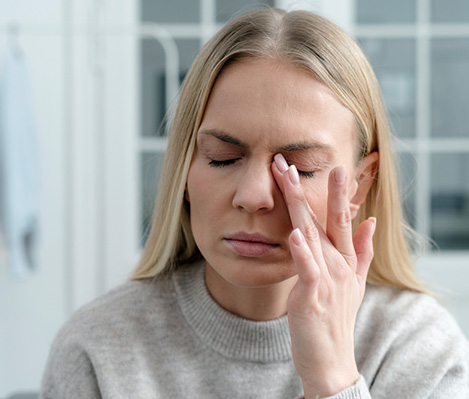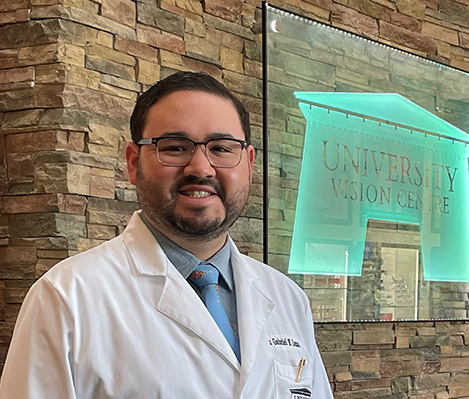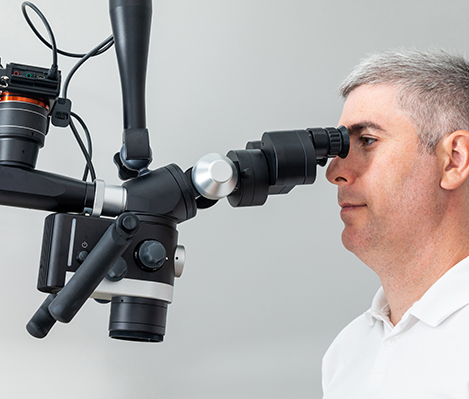University Vision Centre
Binocular Vision
Dysfunction
What is Binocular Vision Dysfunction?
Binocular vision dysfunction (BVD) is a serious eye condition where the eyes are misaligned, which causes them to send two different images to the brain. The brain struggles to merge these two different images into one clear picture, causing symptoms such as headaches, dizziness, anxiety, motion sickness, and chronic neck pain. Some research suggests that at least 20% of adults experience some symptoms of BVD that may be interfering with their everyday lives.


Symptoms of Binocular Vision Dysfunction
Binocular vision dysfunction can affect people of all ages. Children with BVD often struggle with reading in school, hand-eye coordination, playing sports, and car sickness. Because it affects learning, many children get misdiagnosed with another condition like ADHD, dyslexia, or chronic migraines. Adults with BVD may struggle with work, driving, or other vision-related tasks — a person may suffer from regular headaches, daily anxiety, dizziness, and can be severely limited from doing normal tasks or succeeding in the workplace.
Causes
The simplest explanation is that BVD is caused by facial asymmetry, though that asymmetry can occur for a number of reasons. Concussions and head injuries are a common cause. Genetics play a role — BVD is most commonly passed down from mothers to daughters. There is also a connection between BVD and other medical conditions, like Lyme disease, stroke, COVID-19, and mononucleosis.

Wonder if you could have
Binocular vision Dysfunction?
If you are suffering from symptoms of BVD and nothing has worked, then you should consider taking our self-test below, or scheduling an eye exam. Our team of binocular vision dysfunction specialists have the advanced tech and expertise to accurately determine the source of your symptoms and create a personalized treatment plan to give you the relief you deserve.

Treatment Options
Binocular vision dysfunction is caused when your brain is processing two different images at the same time, so the best way to counteract this is re-align those images. Enter prism lenses: this novel eyeglass lens technology adjusts your sight to trick your brain into perceiving a single, aligned image, which eases eye strain. Most patients notice a significant symptom reduction immediately, and after your eyes adjust, you’ll see clearly and symptom-free in no time!
OUR CONVENIENT LOCATIONS
Let’s Start a Conversation
"*" indicates required fields
Meet Dr. Gabriel Luna
An award-winning and bilingual eye care specialist, Dr. Gabriel Luna received his Doctor of Optometry from Midwestern University’s Arizona College of Optometry where he graduated with clinical honors. Dr. Luna is a Binocular Vision Dysfunction specialist who excels at treating BVD eye misalignments in patients of all ages.


Why Choose Our Binocular Vision Specialists?
Our binocular vision dysfunction doctors are experts — we implement top-of-the-line care, using the most modern equipment and most up-to-date optometrist practices. With us on your side, you’ll enjoy a truly full-service eye care experience that takes the time to understand you on a personal level. With our binocular vision specialists on your side, you’ll feel confident that we’re the best choice. Book an appointment with Dr. Luna today and get relief from your BVD symptoms!
See What the Community Says About Our Care
There’s no better way to learn about the level of service we provide than from our patients:

